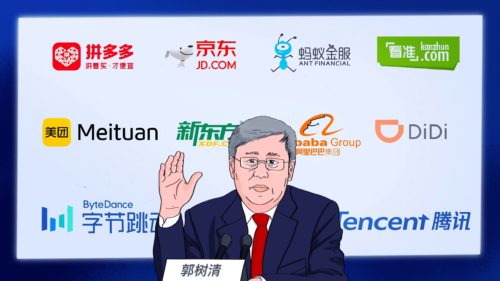Why is Tencent investing in European fintechs?

A version of this article was originally published by KapronAsia, a Shanghai- and Singapore-based fintech consultancy.
Tencent is stepping up its fintech investments outside of China, where the company has probably already reached peak market share as part of a duopoly with Alibaba’s fintech arm Ant Financial. One approach for Tencent is direct expansion — the launch of WeChat Pay in international markets. That’s a good idea in any country frequented by Chinese tourists or business travelers.
But direct expansion only goes so far, especially in developed economies. Tencent doesn’t expect that consumers in Europe or the United States will adopt WeChat Pay instead of Apple Pay, Google Pay, or apps created by local banks and fintechs. Instead, the Shenzhen-based company is taking strategic stakes in ascendant startups, including French mobile payment app Lydia and challenger bank Qonto. These investments will give Tencent a chance to grow its fintech business in Europe through local rising stars, much as the company has become a global powerhouse in electronic gaming through strategic acquisitions and investments.
Tencent led Lydia’s recent $45 billion Series B funding round, which included participation from existing investors CNP Assurances, XAnge, and New Alpha. Lydia is among the most widely used mobile payment apps in France, particularly among young adults. A quarter of French people between 18 and 30 use Lydia, according to TechCrunch. The app has 3 million users and is reportedly adding 5,000 new ones daily.
Lydia’s executives say that the company wants to become a mobile financial services app that offers customers a suite of financial services — “a meta-banking app.” Some of the services will be Lydia’s. Others will be offered by third parties. The idea is to create a financial hub within the app. Lydia highlights WeChat’s success in building out its digital banking services — WeChat Pay began as a basic e-wallet before launching a much larger variety of services.
The cash from the Series B funding round will also support Lydia’s regional expansion. Outside of France, Lydia doesn’t yet have a large footprint.
Tencent also co-led a $115 million Series C funding round for French B2B challenger bank Qonto. Qonto says the round is the largest to date for a French fintech. After launching in France in 2017, the company expanded to Germany, Italy, and Spain two years later. It has 65,000 small- and medium-sized enterprise (SME) customers and processed $10.8 billion in transactions in 2019.
Qonto’s focus on SMEs and freelancers in Europe separates it from the pack. The market segment is underserved — unlike retail banking — while regulatory hurdles are modest. A fintech firm licensed in one EU/EEA state (in Qonto’s case, France) can enter the European single financial market with relative ease. It is typically not necessary to establish offices and pass licensing procedures in the other member states. Qonto has a payment institution license (the first B2B neobank in Europe with this license) and is expected to get a credit institution license by the end of the year. In a statement on its website, Qonto said, “We are on our way to becoming a fully licensed European bank in 2020!”





